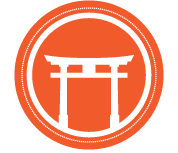Are Aikido Seminars Important?
INRYOKU VOLUME 5 ISSUE 1
BY JOSH PAUL SENSEI, AOSB HEAD INSTRUCTOR
There are many pitfalls along the path of aikido. Perhaps none are quite so treacherous as that of complacency. When practicing in the same place, with the same people, at the same time of day, day upon day and year upon year, it is easy to grow too comfortable. Over time, we learn the nuances of the space, and unconsciously avoid uneven flooring and where the mats do not fit squarely together. We know who has a bad wrist, a weak knee, or a wicked nikkyo pin. We know all the teachers' jokes and wish they’d write some new material. Consequently, instead of practicing mindfully and with attention to detail, we practice by rote, going through the motions, and running the risk of convincing ourselves our aikido works when it does not.
One way to break the routine and avoid the complacency trap is to attend seminars. Seminars offer opportunities to train in a new environment and with new people. With different teachers, there is the opportunity to learn new techniques, and to see and hear familiar techniques explained differently. There is also the sheer volume of time on the mat: 10 or more hours over the course of 3-4 days. It is equivalent to and possibly more than a month's worth of training.
Seminars are also obstacle: something to be worked through and overcome. How does it feel physically and mentally when your practice increases from 1 or 2 hours per week to 5 or 6 hours in a single day? What happens when faced with a new training partner, or a new teacher says, “your other left foot.”
Seminars are open to students of all ages and ranks. At AOSB, we are doubly lucky when it comes to seminar access. The Aikido World Alliance offers seminars year-round throughout the world, and some of the world’s most skilled aikido teachers from other lineages frequently visit NYC. It is easy to keep track of seminars, too. Just follow @aikidoworldalliance on Instagram or Facebook, read the dojo’s calendar, and check the dojo’s bulletin board.



